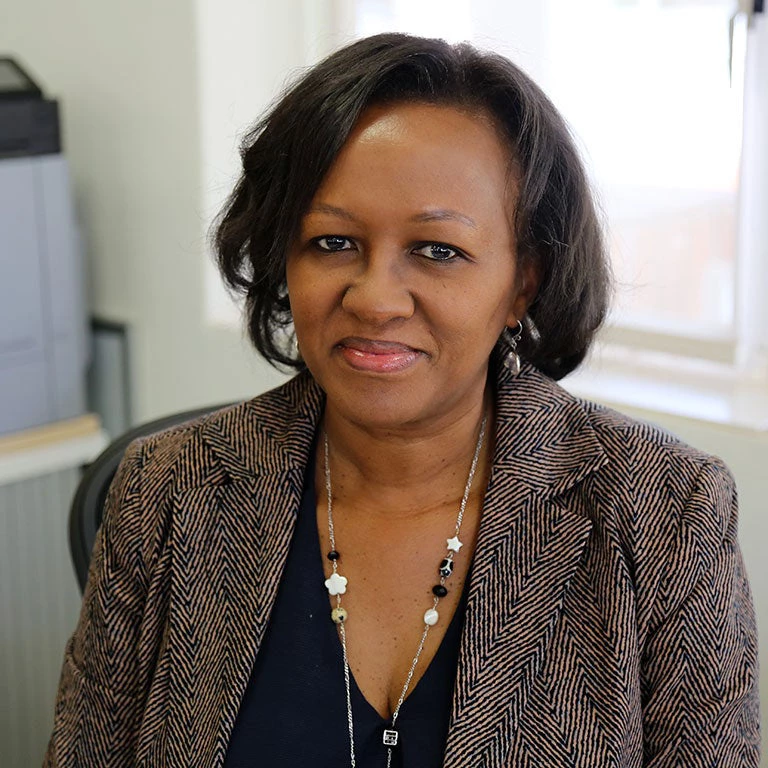A high school drop-out, Evelyn Nakabuye, who lives on the outskirts of Kampala, survived years of joblessness. She lived in a small house with her four children and her mother.
“I was jobless and stranded,” she says.
That all changed in 2018 when Evelyn heard about a training opportunity at TEXFAD, a skills training academy located near her home. She enrolled the same year and trained for six months in carpet-design and weaving, a program falling under the US$100 million World Bank-funded Uganda Skills Development Project. She excelled at it and was retained by the program to teach others how to make carpets from banana stem fiber and T-shirt offcuts. With her salary, Evelyn now lives in her own house, pays school fees for her children, and takes care of herself.
Stories such as Evelyn’s are heart-warming. This is exactly why Uganda is committed to investing in workforce skills development as part of its objective under the country’s Third National Development Plan to accelerate the acquisition of urgently needed skills in key growth areas, and to create a skilled, inclusive, and ethical labor force.
We see enormous opportunities in harnessing the powers of youth and women to achieve real and sustainable economic transformation for Uganda. Today there are nearly 10.5 million Ugandans between 15 and 29 years of age, with this number expected to grow to 13 million by 2030. However, many young people are engaged in activities that are low-skill, low-earning, low-productivity, and low-value-added. This is particularly so in agriculture, where 72% of the youth are employed in "traditional" agriculture. So, we need to provide youth and women with skills to move higher up the value chain in agriculture, as well as to enter other sectors of the economy.
Strategic skills development policies and interventions will play a key role in this transformation. Importantly, skills programs need to give trainees a flexible skill set, one that includes cross-cutting elements, such as communication and problem-solving skills, and how to use personal initiative and digital know-how. This approach ensures that workers have skills suited to today's economic realities—the skills to enable economic transformation—and the skills needed to adapt to fast-changing labor market demands.
Building blocks first
Improving the quality of basic education is an essential building block for skills development, skills upgrading, and, ultimately, for productive employment. But most youth in Uganda are not completing their basic education. Uganda has universal enrollment in primary (elementary) education but one of the lowest primary cycle survival rates. This is linked to high dropout rates, particularly between Primary 5 and Primary 7, which has led to low transition rates overall between primary and secondary education.
This undermines the benefits of skills training later in life. Foundational skills such as functional literacy and numeracy, and some may include digital literacy in our world now, collectively serve as a critical base for further skills' development.
The World Bank's Uganda Skills Development Project is expanding opportunities for the development of skills that are market-driven and enterprise-driven, including for the informal sector.
So far more than 82,000 youth (47% of whom are female) have benefitted from industry- and enterprise-based training for the formal and informal sectors. The impact study for this intervention shows the good transition of over 60% of graduates to employment and promises the potential to scale-up similar training programs, particularly those that target vulnerable youth, women, and micro- and small enterprises for upskilling and retooling workers in key economic sectors.
The project has also supported the development of new standards in the training curricula of trades and occupations aligned with these priority sectors, such as agro-processing, manufacturing, construction, transport and logistics, ICT, and hospitality. These occupational standards ensure that the skills provided are aligned with what the labor market demands.
To really bring about sustainable change, though, we need to invest in skills development at scale, for impact. Employers across formal and informal sectors in Uganda say the lack of practical, digital, and entrepreneurial skills, as well as a lack of soft skills—such as managerial, communication, and socio-emotional—are limiting improvements in productivity. Uganda also needs to position its workforce for the emergence of green economies and digital economies, which are opening up new opportunities for the development of skills to them. And, most importantly, improving Uganda’s human capital, particularly for women like Evelyn, who completed her primary though not her secondary (high) school education, is crucial to achieving a more inclusive growth that accelerates poverty reduction.




Join the Conversation